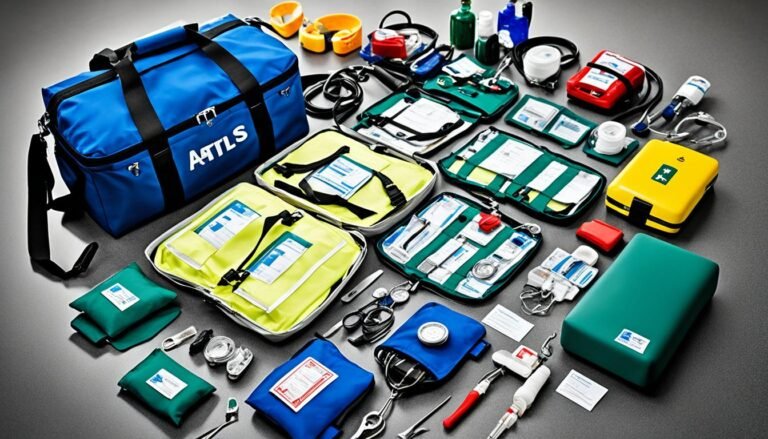Top Benefits of a Doctorate in Community Health Care Administration
Are you a healthcare professional looking to reach new goals? Have you thought about getting a doctorate in community health care administration? This step opens many career doors. It gives you the skills and leadership chances to really stand out in the field. Let’s look at the big benefits of a doctorate in this field and how it can lift your career higher.
Key Takeaways:
- Obtaining a doctorate in community health care administration offers career advancement opportunities.
- It provides enhanced expertise, leadership opportunities, and specialized skills.
- Networking and research opportunities contribute to higher salary potential.
- Advanced knowledge gained through the program can set you apart in the healthcare industry.
- A doctorate in community health care administration allows you to make a meaningful impact in the field.
Importance of a Doctorate in Healthcare Administration
A doctorate in healthcare administration is very important. It gives professionals the skills they need. This helps them lead in patient care and policy changes. With this degree, they become key experts in healthcare.
Healthcare jobs are growing quickly. By 2026, about 2.3 million new jobs will be in healthcare. Having a doctorate in healthcare admin makes these jobs more accessible. It prepares professionals to meet the rising demands in healthcare.
A doctorate gives a big advantage in healthcare. It shows a strong grasp of the healthcare world. Those with this degree improve as leaders. They can make big changes in healthcare organizations.
People with a doctorate earn more. This is because they have advanced skills. With this degree, they often get into top management roles. More responsibility means better pay and benefits.
Obtaining a doctorate in healthcare administration is a strategic investment in one’s career. It not only amplifies expertise and leadership but also unlocks a world of opportunities for personal and professional growth.
A doctorate also improves patient care and health policies. The program teaches how to look at healthcare systems. It shows how to make things better with facts. With this knowledge, professionals can make healthcare better.
To sum up, a doctorate in healthcare administration is key for professionals wanting to lead. Healthcare is growing fast. This degree opens doors to better jobs and the chance to change healthcare for the better.
DHA vs. Ph.D.: Choosing the Right Degree
Healthcare pros face a big choice in their academic journey. They must decide between a DHA and a Ph.D. Both focus on research, but lead to different careers and goals.
A Ph.D. is great for those who want to work in research or teach at universities. It allows you to dig deep into your field, learn new methods and theories. This path leads to jobs as researchers, professors, or experts in their field.
DHAs are for those who want to lead in healthcare. This degree helps professionals learn how to lead and manage in healthcare settings.
“A DHA degree provides unique opportunities for professionals to contribute to the healthcare system in a variety of ways.”
Holding a DHA helps professionals tackle big issues in healthcare with solid strategies. They can lead teams, make big decisions, and change healthcare for the better.
Those with a DHA often find themselves in key leadership positions. They may become healthcare execs, hospital heads, or top directors in health organizations.
With their DHA, professionals get to play a big part in making healthcare better. They focus on improving patient care, making healthcare systems efficient and effective.
Comparing the DHA and Ph.D.
| Aspect | DHA | Ph.D. |
|---|---|---|
| Focus | Healthcare industry and administration | Research and academia |
| Career Path | Leadership positions, administrative roles | Researcher, professor, scholar |
| Application | Clinical settings, hospitals | Research institutions, universities |
| Skills | Healthcare management, evidence-based decision-making | Research methodologies, theoretical frameworks |
The choice between a DHA and Ph.D. depends on what you want for your future. Your career dreams, interests, and how you want to help the healthcare field matter a lot. Both degrees open doors for you to grow, research, or lead.
You could go for a Ph.D. to become an academic or choose a DHA to lead and change healthcare. Both are powerful ways to build a career that matters.
In the next section, we’ll look at what career options you have with a DHA.
Career Opportunities with a DHA
A Doctorate in Health Administration (DHA) offers many chances in healthcare. It lets professionals work in hospitals, medical companies, and more. They can also take on big roles like CEO or Chief Innovation Officer in hospitals.
Those with a DHA can help with healthcare technology. They might lead nursing homes to ensure the best care. A DHA also paves the path to advising healthcare companies on better ways.
People with a DHA often earn more. Health administrators make about $104,280 a year on average. But those in big hospitals might make up to $195,630.
A DHA boosts careers in healthcare. It gives the chance to lead and learn specialized skills. This can really change the healthcare world and help society.
Sample Table: Career Opportunities with a DHA
| Industry | Potential Roles | Average Salary |
|---|---|---|
| Hospitals | Chief Executive Officer (CEO) | $193,680 |
| Chief Patient Experience Officer | $187,180 | |
| Chief Innovation Officer | $187,180 | |
| Medical and Pharmaceutical Companies | Healthcare Consultant | $81,020 |
| Nursing Home Administration | Nursing Home Administrator | $100,980 |
The table shows how a DHA can open up great jobs in healthcare. These jobs let professionals lead, changing healthcare for the better. Plus, they often come with higher pay, showing their expertise.
Advantages of Earning a DHA
Earning a Doctorate in Community Health Care Administration (DHA) has many benefits. It helps healthcare professionals advance their careers. They can also earn higher salaries and enhance their personal brand in the industry.
Having a DHA can lead to better job opportunities. It allows professionals to get higher-level roles with more leadership chances. They might manage a healthcare place, lead a team, or start big projects.
A DHA also means more money. Those with this degree usually earn more, because they have more skills and knowledge. Their expertise and leadership from the DHA can make them very valuable to companies, so they get better pay.
“Earning a DHA offers healthcare professionals the chance to establish and strengthen their personal brand. By attaining this prestigious degree, professionals demonstrate their commitment to excellence and dedication to advancing healthcare knowledge and quality improvement.”
A DHA helps healthcare workers boost their personal brand. They learn a lot about healthcare, which lets them make care better. This helps patients and their workplaces.
Also, DHA programs teach professionals to make big changes in healthcare admin. They can help with policies, best practices, and improve care quality. This is important work.
Overall, getting a DHA is a big plus for healthcare workers. It leads to better jobs, more pay, and making healthcare better. It’s a good step for anyone who wants to grow in their career and help patients.
The Path to Earning a DHA
Choosing the right DHA degree program is key to success. Franklin University’s online program supports working adults. It aims to help students succeed every step of the way.
Research Programs: The DHA degree focuses on research. It helps students innovate and improve healthcare.
Comprehensive Support: We know how hard it can be for adult learners. Our program offers expert advice, and support to help you thrive.
Online Classes: Our classes are online for your convenience. This flexibility lets you study while managing other life demands. You can study and discuss topics at your own pace.
Three-Year Completion: The DHA degree can be earned in three years. This quick process helps you start using your new skills in the healthcare sector sooner.
Franklin University is committed to your success in healthcare administration. We enhance your learning experience to prepare you for opportunities in the field. Join us on the journey to your DHA degree and open doors in healthcare.
MPACH – Shaping Visionary Leaders in Healthcare
The MPACH program at the University of Texas Health shapes tomorrow’s healthcare leaders. It blends challenging academics with hands-on experience. This mix readies students for influential roles in healthcare.
MPACH merges real-world insights with academic theories. Students learn vital leadership skills for industry change. It offers various programs, such as Community Health Practice and Healthcare Management, giving graduates a solid foundation.
In the heart of the Texas Medical Center, MPACH links students with leading healthcare figures. This sets the stage for lifelong connections and learning beyond graduation.
MPACH is driven to prepare healthcare experts to navigate the industry’s complexities. It equips students with the essentials to succeed and lead change in healthcare. This training sets the groundwork for students to impact healthcare communities for the better.
After MPACH, graduates advance healthcare across various sectors. They take on key roles, influencing policy and enhancing healthcare quality. Their leadership helps shape the future of the industry.
MPACH is for those who aspire to lead in healthcare. It offers rigorous coursework, practical learning, and research opportunities. These elements ready graduates to face healthcare’s future challenges boldly.
Highlighted Programs Offered by MPACH:
- Community Health Practice
- Healthcare Management and Policy
- Health Economics and Health Services Research
| Benefits of MPACH | Highlights |
|---|---|
| 1. Academic Rigor | – Integrated learning approach – In-depth theoretical and practical knowledge |
| 2. Practical Involvement | – Hands-on experiences and real-world projects – Collaborative learning with industry professionals |
| 3. Leadership Skills | – Development of critical thinking and decision-making abilities – Effective communication and strategic planning |
| 4. Healthcare Organizations | – Networking opportunities with prestigious institutions – Access to a wide range of career prospects |
MPACH equips professionals with the knowledge to effect change in healthcare. Its model for leadership, rooted in academic robustness and practical learning, cultivates influential leaders. These leaders will positively impact healthcare at large.
Research Opportunities in MPACH
MPACH at the University of Texas Health is a lively hub for study. It focuses on bettering community health, health economics, and research on health services. The department is active in many initiatives funded by grants. It also works closely with top health and community groups. This partnership network helps MPACH researchers add real value to healthcare and society in general.
MPACH covers various research areas, from how communities can be actively involved in research to understanding health differences. It also looks into how healthcare choices and policies are made. MPACH’s goal is to tackle the big issues affecting healthcare systems and communities. Ultimately, it aims to better overall health and ensure fair care for everyone.
MPACH takes pride in its ties to many centers and institutes. These connections offer more opportunities for both students and teachers. They provide ways to lead and grow, creating a team environment where new, creative thoughts are encouraged.
Examples of Significant Contributions
MPACH graduates have done fantastic work in academia, health departments, governments, and communities around the world. Their studies have brought new insights and suggestions. These have improved how healthcare is done and how policies are made.
| Research Area | Significant Contribution |
|---|---|
| Community Health | Developed community-based interventions to address health disparities in underserved populations, resulting in improved access to healthcare services. |
| Health Economics | Conducted cost-effectiveness analyses of various healthcare interventions, informing decision-making and resource allocation strategies. |
| Health Services Research | Investigated the impact of healthcare policies on patient outcomes and healthcare delivery, guiding policymakers in creating evidence-based reforms. |
| Partnerships | Forged collaborations with community organizations and healthcare providers to co-create and implement innovative programs that promote community health and well-being. |
MPACH is all about achieving high levels of research and helping out in community health. It ensures its graduates are ready to make a big difference in their fields. Through important research, policy support, or working directly with communities, MPACH students are ready to impact healthcare positively, both locally and globally.
What Can You Do With a DHA?
Getting a Doctor of Healthcare Administration (DHA) opens many doors. It lets you aim for top roles in healthcare. With a DHA, leading strategic planning and decision making in healthcare settings is possible.
- Health Information Manager: This role focuses on keeping health records right and secure. You make sure patient data is well taken care of.
- Clinical Manager: As a clinical manager, you run a hospital department. Your job is to manage operations and keep everything running smoothly.
- Healthcare Facility Director: Want to oversee an entire healthcare center? As a director, you will handle the big picture, including finances and daily operations.
Heading such roles means being strong in managerial basics, having a strategy, and communicating well. Impacts in healthcare, like better patient care, are within reach with a DHA.
Making a Meaningful Impact with a DHA
Earning a Doctor of Healthcare Administration (DHA) helps professionals enhance healthcare quality. DHA graduates use their advanced knowledge to improve care systems. This leads to better care for patients and supports the teams caring for them.
A DHA lets healthcare experts lift overall healthcare efficiency. They use strategic planning and evidence-backed methods to improve care delivery. Such efforts save time and better meet patients’ needs.
Getting a DHA brings both personal and career benefits. It lets experts feel good about helping people and leading change in healthcare. They become key players in their area.
“Earning a DHA allows healthcare professionals to create positive change within the healthcare industry and drive improvements in patient care. Through their expertise and leadership, DHA graduates can make a meaningful impact on healthcare outcomes.”
– Dr. Jane Thompson, Healthcare Administrator
A DHA opens up more job options in healthcare leadership. It allows grads to lead and improve care quality. The unique skills they learn are highly valued in the healthcare sector.
The journey of earning a DHA also leads to personal growth. As they study more, healthcare workers understand the challenges of management better. This knowledge doesn’t just help them but improves patient care too.
Improved Patient Outcomes
Educated in a DHA program, healthcare workers can advance patient outcomes. They learn to plan and launch strategies for better care. From improving coordination to using best practices, DHA grads boost care quality.
Enhanced Efficiency
DHA grads help healthcare run smoother. They improve processes, use resources better, and apply new tech. This makes care quick and effective, improving patient experiences.
Promoting Higher Quality of Care
Delivering high care quality is every pro’s aim. DHA grads push for better care continuously. By sticking to best practices and focusing on safety and excellence, they lift care standards.
Getting a DHA helps pros grow personally and professionally. It enables them to have a real impact on healthcare by leading, using their know-how, and caring for patient outcomes and efficiency.
| Personal and Professional Benefits of Earning a DHA | Impact on Healthcare |
|---|---|
| 1. Career advancement opportunities | * Higher quality of care |
| 2. Expanded leadership opportunities | * Improvements in efficiency |
| 3. Increased earning potential | * Improved patient outcomes |
| 4. Advanced knowledge and specialized skills | * Personal and professional benefits |
Conclusion
Earning a doctorate in Community Health Care Administration boosts careers. It opens doors to higher pay and new opportunities. It also makes you a leader in healthcare, ready to shape the future.
This program lets you do in-depth research and meet experts. You learn a lot about running healthcare. This grows both you and your career. It’s a smart move for those wanting to better our health systems.
A Ph.D. in this field gives you expert skills and leadership abilities. You’ll stand out and bring positive changes. Plus, it means better jobs and salaries. This degree is your ticket to making a real difference in healthcare.
FAQ
Q: What are the top benefits of earning a doctorate in community health care administration?
Q: Why is a doctorate in healthcare administration important for healthcare professionals?
Q: What is the difference between a DHA and a Ph.D. in healthcare administration?
Q: What career opportunities can I pursue with a DHA degree?
Q: What are the advantages of earning a DHA?
Q: How can I earn a DHA degree?
Q: What does the Department of Management, Policy, and Community Health (MPACH) at the University of Texas Health offer?
Q: What research opportunities are available in MPACH?
Q: What can I do with a DHA degree?
Q: How can a DHA make a meaningful impact in healthcare?
Source Links
- https://www.franklin.edu/blog/is-a-doctorate-in-healthcare-administration-worth-it
- https://sph.uth.edu/dept/mpach/
- https://www.gcu.edu/blog/doctoral-journey/doctorate-health-administration-worth-it

Our Healthcare Editorial Team is composed of subject matter experts and seasoned healthcare consultants who bring decades of combined experience and a wealth of academic qualifications. With advanced degrees and certifications in various medical and healthcare management fields, they are dedicated to supporting the personal and career development of healthcare professionals. Their expertise spans clinical practice, healthcare policy, patient advocacy, and public health, allowing us to offer insightful, well-researched content that enhances professional growth and informs practice.
Disclaimer
The client education section of our blog is intended to support healthcare providers by offering informational resources for patient education. However, this information is not meant to serve as medical advice. We advise healthcare professionals to ensure all content is consistent with their clinical knowledge and confirm with current medical standards before using it in their practice or advising patients. For specific medical issues, always refer to professional guidance and standards of care.
For any legal matters or specific medical concerns, we strongly recommend consulting with a qualified legal professional or referring to government websites for authoritative information.







